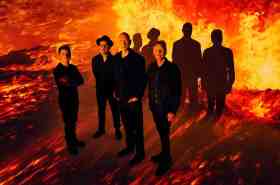What do the films Home Alone, Raiders of the Lost Ark, The Sound of Music, Journey to the Center of the Earth, Empire of the Sun, Witches of Eastwick, and The Grinch have in common?
The answer is that each draw on what Batman and Beetlejuice composer Danny Elfman has described as ‘the biggest, badass sound’. Which is what he calls the pipe organ, a 1920s synthesized version of an orchestra – with effects.





